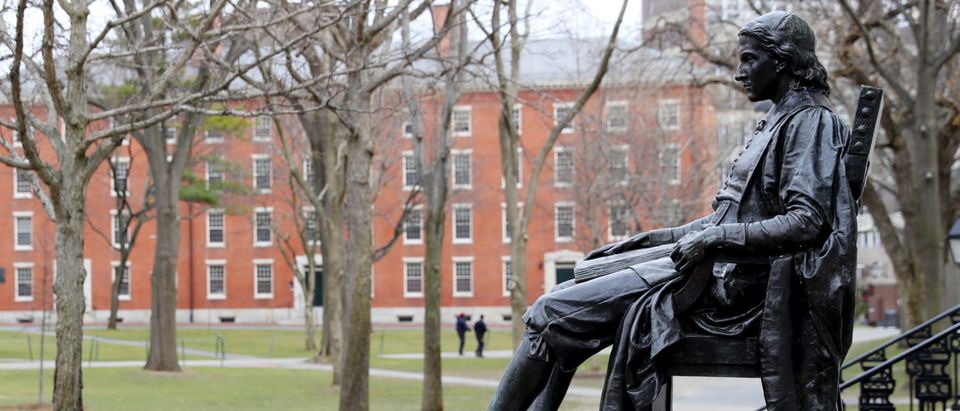Morning comes after night. Covid-19, Wuhan Flu, the Scourge of China — call it what you will (or what the PC police will allow you to call it) — will be gone one of these days and life will resume. But life will be different. A good guess is that a good scary pandemic will have a cleansing effect on the sybaritic and woke life imposed on us by liberal progressives who have been for decades and still are the promoters and guardians of public life and culture.
“A crisis is a terrible thing to waste” is not an aphorism that a conservative could warm to because it’s really just a rallying cry for people who don’t believe in democracy (e.g., liberal progressives) and those who like to have the courts do their heavy legislating for them (e.g., legalizing abortion or same-sex marriage) when the elected legislatures won’t.
But the current crisis — and make no mistake: this is a crisis — is a crisis for woke liberal progressives, but it should not be used by conservatives to make an end run around democracy. One aspect of the current crisis is the impending collapse of what is euphemistically called “higher education” — a term that raises the question, of course, higher than what?
The two basic problems with a college “education” today are undeniable. They are (1) that college is ridiculously, and unnecessarily, expensive, and (2) that students learn almost nothing in college. College is also dangerous — as any college student who’s ever said to a girl, “Gosh, you look pretty,” knows.
A recent piece in The New York Times should warm the heart of any sane person: “Public colleges and universities are in trouble.” Yes! Enfin — as some people who have studied, and learned, a foreign language might say. And private colleges are in trouble too — there is a god after all, even if he is only nontheistic.
For years, young people have been told that college is the yellow brick road to riches, or at least success, or at the very least to financial stability — or at the very, very, very least to moving out of their parents’ basement. Exhibit A? Some guy or gal who (probably following in a parent’s footsteps ) went to Harvard, Yale or Princeton (or maybe Duke or Stanford if he or she wasn’t from New York) and wound up at a woke law firm on Wall Street or K Street making millions vetting contracts between China and big corporations that wouldn’t give a dime to defend Western Civilization.
Right: tell that to the more than five million college graduates who are behind on their student loan payments. They’ll be in hock for most of their working lives paying off their loans, which pay the salaries of (i.e., “pay off”) the diversity, multicultural, gender sensitivity, multi-ethnicity, cross-cultural sensitivity, social justice counselors — a class of people who owe their jobs, as well as their existence, entirely to woke liberal progressives.
What does college cost? The University of Virginia charges Virginia residents $14,000 a year while out-of-state students pay $48,000. After four years, a student will have paid either $56,000 or $192,000 in tuition. Even the late Senator Everett Dirksen (R–IL), who coined the phrase, “A billion here, a billion there, and pretty soon you’re talking real money” might have been impressed. Of course, if the students didn’t actually pay that amount up front, they probably still owe it.
The other important question is, what do students learn for all that money? The answer, we know, is little to nothing. Bryan Caplan makes the case against education in his 2018 book, appropriately titled, The Case Against Education. First, he says, “Barely half of American adults know the Earth goes around the sun.” Well, you might say, in defense of higher ed: “Do you really need to know that in order to prefer Joe Biden to Donald Trump.” (Shhh . . . does old Joe know that? And even if he does, can he articulate it?)
Second, says Caplan, education is all about credentialing. “The labor market doesn’t pay you for the useless subjects you master,” he writes (referring obviously to the few students who master something), “it pays you for the pre-existing traits you reveal by mastering them.” But the labor market could devise other ways of measuring those pre-existing traits, by, say, measuring the amount, and difficulty, of public service young people had performed in the previous several years.
So almost the whole college education business is a sham — except for the colleges!
Many colleges are now looking at financial hardship, some at financial devastation and others at financial ruin. Most of them will be looking for bailouts. Bailouts should be resisted. The whole system needs to be rethought. And what better catalyst than a pandemic?
If colleges collapse by the hundreds, or thousands, the federal government will save billions of dollars it would otherwise grant to them: federal aid to higher education was about $120 billion last year ($31 billion in grants and $90 billion in student loans). The money the federal government saves, annually, could be used to pay off a portion of all outstanding student loans (currently in excess of $1.5 trillion), or preferably a part of only the loans of people whose income categorizes them as middle class at best. (Note to Republican campaign officials: there are more middle class students with outstanding loans than there are college professors and administrators).
Soon, the dark night of the pandemic will be over. It would be a shame to waste the dawn’s new light.
Daniel Oliver is Chairman of the Board of the Education and Research Institute and a Director of Pacific Research Institute for Public Policy in San Francisco. In addition to serving as Chairman of the Federal Trade Commission under President Reagan, he was Executive Editor and subsequently Chairman of the Board of William F. Buckley Jr.’s National Review.


